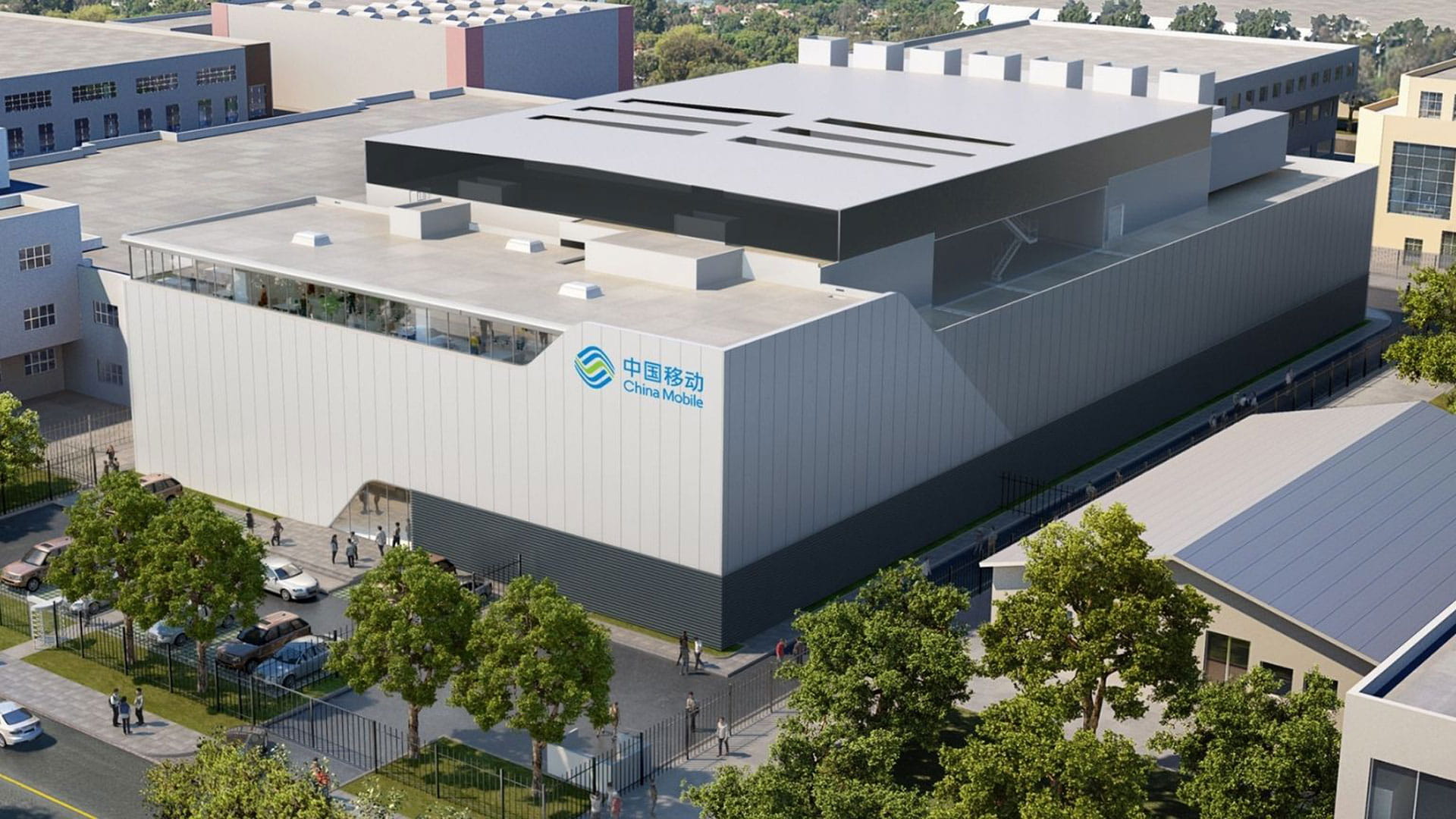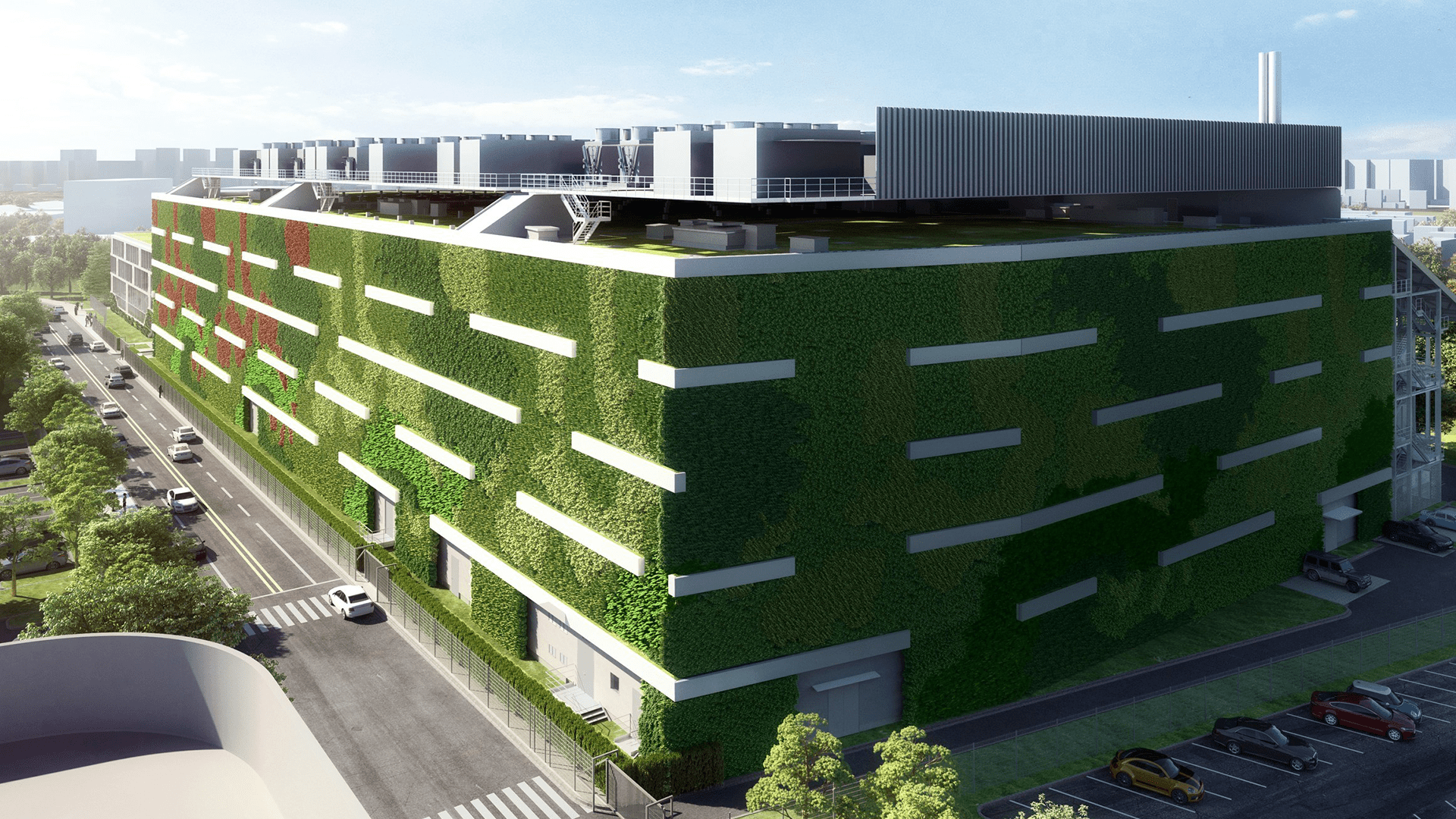Unveiling the unique data centre challenges in Germany
Explore Germany's data centre industry and the exclusive hurdles it faces. In this blog post, we'll delve into the design and engineering challenges unique to the country and how industry players are proactively addressing them.

As the digital landscape continues to expand, data centres have become the backbone of our technological infrastructure. These facilities store and manage vast amounts of data, supporting various online services, cloud computing, and critical business operations. However, different regions around the world present unique challenges in establishing and operating data centres. In this blog, we delve into Germany's data centre industry to understand the specific obstacles operators face and how they approach the complexities of this evolving market.
The growing data centre market in Germany
Germany, especially the Frankfurt area, has long been a powerhouse in the European data centre market. The country's strategic location, robust economy, and advanced technological infrastructure make it an attractive destination for data centre investments. With its central location within Europe, Germany serves as an essential hub for connecting various regions and serving a broad user base.Frankfurt, renowned as one of the FLAP-D cities comprising Frankfurt, London, Amsterdam, Paris, and Dublin, stands as one of the largest data centre hubs and the primary location for data centres in Germany. As we look ahead to 2023, Frankfurt is projected to outshine other FLAP-D cities with an impressive forecasted new supply of 157MW, solidifying its position as the leading data centre city in Europe.
Despite its leading position, Frankfurt faces unique challenges in the data centre industry. Strict regulations restrict the availability of suitable land options within the city, and securing an adequate power supply is an ongoing struggle. These struggles are not unique to Frankfurt alone; other prominent German data centre hotspots, such as Berlin, Dusseldorf, Hamburg, and Munich, encounter similar obstacles.
However, despite these hurdles, the development of data centres in Germany continues to thrive. In this blog, we will explore the specific problems faced by data centre developers and delve into the innovative tactics employed to overcome these, ensuring sustained growth and progress in the data centre market., Amsterdam, Paris, and Dublin, stands as one of the largest data centre hubs and the primary location for data centres in Germany. As we look ahead to 2023, Frankfurt is projected to outshine other FLAP-D cities with an impressive forecasted new supply of 157MW, solidifying its position as the leading data centre city in Europe.
Despite its leading position, Frankfurt faces unique challenges in the data centre industry. Strict regulations restrict the availability of suitable land options within the city, and securing an adequate power supply is an ongoing struggle. These struggles are not unique to Frankfurt alone; other prominent German data centre hotspots, such as Berlin, Dusseldorf, Hamburg, and Munich, encounter similar obstacles.
However, despite these hurdles, the development of data centres in Germany continues to thrive. In this blog, we will explore the specific problems faced by data centre developers and delve into the innovative tactics employed to overcome these, ensuring sustained growth and progress in the data centre market.
Power availability and costs
Securing a stable and cost-effective power supply in Germany has become increasingly difficult. The country’s energy transition towards renewable sources, such as wind and solar power, reflects a commendable commitment to sustainability. However, integrating these renewable energy sources into data centre operations presents unique engineering hurdles. The decreasing secured capacity and increasing peak load in Germany can lead to supply gaps, impacting the consistency and reliability of the energy supply.To address this, data centre designers must adopt innovative strategies to optimise energy usage and balance power demand and supply. Implementing energy storage solutions, such as advanced battery technologies, becomes vital to storing excess renewable energy during peak production and releasing it during periods of high demand.
Regulatory hurdles and environmental concerns
In addition to securing a stable power supply for your new data centre site, regulations can have a major influence on the location of your next data centre project as well. Site selection for a new data centre project can become difficult due to varying local regulations. For example, Frankfurt faces strict regulations that prohibit the use of land options in the city. The updated Commercial Space Development plan for data centres in Frankfurt designates suitable, restricted and excluded areas for development.Germany’s commitment to sustainability and green initiatives adds another layer requiring in-depth knowledge. Data centres are known for their high energy consumption, prompting the need to adhere to strict environmental standards. Upcoming legislation, such as the proposed amendment to the Energy Services Act (des Energiedienstleistungsgesetzes - EnEfG), could have major implications for new data centre development. If approved, this law would mandate data centres to provide waste heat to nearby heating networks, meet renewable energy usage quotas and comply with additional reporting obligations.
Furthermore, Germany aims to introduce environmental management systems in all data centres by 2025, followed by a target for climate-neutral operations by 2027. These regulations reflect the country’s high commitment to sustainability.
Overcoming these difficulties may seem daunting. That’s where we come in. At Royal HaskoningDHV, we take pride ourselves in being your trusted partner for managing these challenges. With a proven track record of designing over 500 MW IT load for greenfield data centre projects in Germany, we possess the expertise and experience to guide you through the intricacies of data centre development. Reach out to us to discover how we can assist you.
Explore our German data centre projects
Meeting the challenge of technological adaptation
In the coming years, a significant increase is expected in the demand for data centres. Many of the current centres might not be able to handle this demand. Some deal with old cooling systems, issues with power distribution and space limitations. All of these aspects need thoughtful changes. At the same time, the strong push to use more renewable energy like solar or wind power, improve cooling methods and use power more efficiently is also affecting existing data centres. Amid these complex challenges, the data centre industry is striving to transform existing data centres into flexible and energy-efficient hubs prepared to manage the huge growth of digital data and services.This means for data centres that are already up and running, proactive steps to stay competitive and relevant need to be taken. Keeping up with the growing demand involves rethinking the way your infrastructure is set up. This transformation process involves finding the right balance between upgrading existing systems and making sure operations continue uninterruptedly. Retrofitting established data centres requires careful planning and is often carried out in stages to minimise disruptions.
Workforce and skill gap
As the data centre industry in Germany experiences rapid growth, the demand for skilled professionals continues to soar. Positions in data centre management, cybersecurity, and other specialised roles are in high demand, but the widening skill gap in the technology sector poses a significant challenge in finding qualified talent.To bridge this gap and nurture a skilled workforce, the data centre industry is taking proactive measures. Collaborations with academic institutions to develop tailored educational programs and curricula focused on data centre technologies are on the rise. Companies are partnering with universities and vocational schools to offer internships, apprenticeships, and scholarship programs to encourage students to pursue careers in the data centre field.
Furthermore, industry associations, like the German Data Centre Association, are initiating efforts to recognise and reward students who contribute to the field. For instance, offering incentives to students writing their theses on data centre subjects not only fosters research and innovation but also attracts young talent to the industry.
By investing in the education and development of a skilled workforce, the data centre industry in Germany can cultivate a pool of qualified professionals equipped to lead technological advancements and drive innovation. Embracing a collaborative approach between academia and the private sector will lay the foundation for a prosperous and sustainable future for the data centre industry in the country.
In conclusion, Germany's data centre industry is undeniably thriving, thanks to its position as a major European tech hub. However, with this growth comes a unique set of hurdles. From navigating strict regulations to environmental concerns and finding skilled employees, data centre operators in Germany must constantly innovate and adapt to meet the demands of the dynamic digital landscape. By overcoming these obstacles, Germany's data centre industry can continue to support the growth of the digital economy while setting a precedent for sustainable and responsible data management practices. If you have any questions or want to learn more about how we can help you navigate these challenges, feel free to reach out to us. Our full-service expertise ensures we can assist you every step of the way, ensuring your data centre's success.


